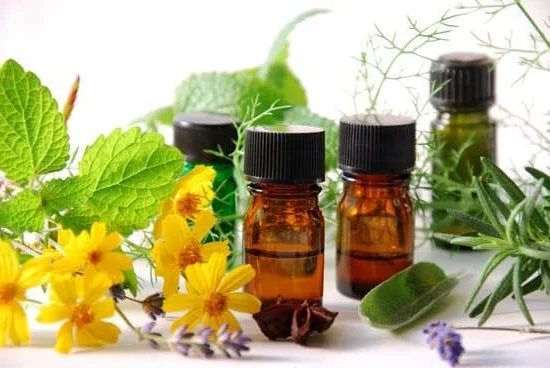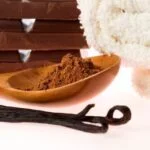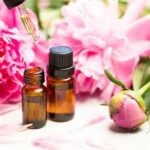
Depression is a complex and often debilitating mental health condition that affects millions of people worldwide. While traditional treatments such as medication and therapy can be effective, many individuals are seeking complementary and alternative approaches to managing their symptoms. One increasingly popular natural solution is aromatherapy.
Aromatherapy has been used for centuries as a holistic practice that harnesses the power of essential oils to promote physical, emotional, and mental well-being. By inhaling or applying these concentrated plant extracts, aromatherapy aims to enhance mood, reduce stress, and alleviate various symptoms associated with depression.
In this article, we will explore the world of aromatherapy for depression. We will delve into the science behind aromatherapy, understanding how essential oils interact with the brain to influence our mood. Additionally, we will discuss the top essential oils known for their anti-depressant properties and highlight different methods of incorporating aromatherapy into your daily routine.
If you are searching for a natural approach to managing your depression, this article will provide valuable insights and practical tips on how to utilize aromatherapy effectively. From case studies and success stories showcasing its benefits to exploring potential safety precautions and combining it with other treatment options – we aim to equip you with the information needed to make informed decisions about your mental health journey.
So join us as we embark on this aromatic exploration, discovering an alternative path towards healing and well-being.
Understanding depression
Depression is a mental health condition that affects millions of people worldwide. It is characterized by persistent feelings of sadness, hopelessness, and a loss of interest in activities once enjoyed. Understanding the symptoms and causes of depression is crucial in order to effectively address and treat this condition.
One of the primary symptoms of depression is a persistent feeling of sadness or low mood. This feeling can last for weeks or even months, significantly affecting an individual’s ability to function day-to-day.
Other common symptoms include a loss of interest or pleasure in activities, changes in appetite or weight, sleep disturbances, fatigue, difficulty concentrating, feelings of worthlessness or guilt, and recurrent thoughts of death or suicide. It is important to note that not everyone with depression will experience all these symptoms, as each person’s experience may vary.
While the exact cause of depression is still not fully understood, it is believed to be a result of a combination of factors including genetic predisposition, biochemical abnormalities in the brain, environmental stressors, and psychological factors such as trauma or loss. Certain medical conditions such as thyroid disorders or chronic pain can also contribute to the development of depression.
It is crucial to remember that depression is not simply a matter of personal weakness or character flaw; it is a complex illness with multifaceted causes.
To gain a better understanding of the underlying causes and potential remedies for depression, ongoing research continues to explore various treatment options. One alternative approach that has shown promise in alleviating depressive symptoms is aromatherapy. By utilizing essential oils derived from plants and their extracts, aromatherapy aims to improve overall well-being by promoting relaxation and reducing stress levels.
The science behind aromatherapy
There is a growing interest in using aromatherapy as a complementary or alternative treatment for depression. To understand how essential oils can affect mood, it’s important to delve into the science behind aromatherapy and the ways in which essential oils interact with the brain.
Essential oils are highly concentrated plant extracts that contain volatile compounds. When inhaled, these compounds stimulate olfactory receptors in the nose which send signals to the limbic system of the brain. The limbic system is responsible for regulating emotions, memory, and behavior.
One key mechanism by which essential oils affect mood is through their influence on neurotransmitters in the brain. For example, some essential oils like lavender and bergamot have been found to increase levels of serotonin, which is known as the “feel-good” neurotransmitter. Serotonin plays an important role in regulating mood and low levels have been linked to depression.
Another way essential oils can impact mood is through their ability to modulate the production of stress hormones such as cortisol. Chronic stress is closely linked to depression, and by reducing stress levels, essential oils may help alleviate symptoms of depression.
Research has also shown that certain chemical components found in essential oils have direct effects on specific brain regions associated with mood regulation. For instance, studies have demonstrated that linalool, a compound abundant in lavender oil, can act as an anxiolytic by binding to receptors in the amygdala and hippocampus.
| Essential Oil | Brain Interaction |
|---|---|
| Lavender | Increases serotonin levels; binds to receptors in amygdala and hippocampus |
| Bergamot | Increases serotonin levels; reduces cortisol production |
| Chamomile | Reduces anxiety; activates GABA receptors in the brain |
While the science behind aromatherapy and its impact on mood is still being explored, numerous studies have shown promising results. Understanding how essential oils interact with the brain can provide insight into why aromatherapy may be effective for depression. However, it is important to note that aromatherapy should not be used as a substitute for professional medical care and consultation with a healthcare provider is crucial for individuals experiencing symptoms of depression.
Essential oils for depression
Essential oils have long been recognized for their therapeutic properties, including the ability to uplift mood and promote relaxation. When it comes to depression, certain essential oils have shown promising results in improving symptoms and enhancing overall well-being. In this section, we will highlight some of the top essential oils known for their anti-depressant properties.
- Lavender: Known for its calming and soothing effects, lavender essential oil is often recommended for individuals suffering from depression. Research has shown that lavender oil can help reduce anxiety levels and improve sleep quality, both of which are common symptoms of depression.
- Bergamot: Derived from the rind of bergamot oranges, bergamot essential oil is known for its uplifting and refreshing aroma. Studies suggest that bergamot oil may help regulate mood by increasing serotonin levels in the brain, promoting feelings of happiness and well-being.
- Chamomile: With its gentle and comforting scent, chamomile essential oil is often used to promote relaxation and alleviate stress. It has also been found to have anti-anxiety effects, making it an excellent choice for individuals struggling with depression.
- Ylang ylang: Ylang ylang essential oil is known for its sweet floral fragrance that can instantly lift your spirits. This aromatic oil has been found to reduce heart rate and blood pressure, promoting a sense of calmness and relaxation.
- Frankincense: Widely used in spiritual practices, frankincense essential oil has been shown to have antidepressant effects. By reducing inflammation in the brain and influencing neurotransmitter activity, frankincense oil may help improve symptoms associated with depression.
While these essential oils have shown promise in alleviating depressive symptoms, it’s important to note that individual responses may vary. It is recommended to consult with a qualified aromatherapist or healthcare professional before using any essential oils as part of your treatment plan for depression.
Additionally, it’s crucial to remember that aromatherapy should not replace traditional medical treatments for depression. Essential oils can be used as a complementary therapy to other interventions, such as counseling and medication. Always seek professional guidance and consider incorporating essential oils into your overall mental health regimen under their supervision.
How to use aromatherapy for depression
Using aromatherapy for depression can be a simple and effective way to improve your mood and overall well-being. There are several methods you can incorporate into your daily routine to maximize the benefits of aromatherapy. Here are some techniques to consider:
Inhalation
Inhalation is one of the most common methods of using essential oils for aromatherapy. You can simply inhale the scent directly from the bottle, or add a few drops to a tissue or cotton ball and hold it near your nose. Another option is to use a diffuser, which disperses the aroma throughout the room. This allows you to passively inhale the oils while going about your daily activities.
Massage
Another popular way to use essential oils for aromatherapy is through massage. Dilute a few drops of your chosen essential oil in a carrier oil, such as coconut or jojoba oil, and apply it to your skin during a massage. The combination of the scent and touch can help promote relaxation and reduce feelings of stress and anxiety.
Bathing
Taking a warm bath infused with essential oils can be incredibly soothing for both your body and mind. Add a few drops of your desired essential oil to a bathtub filled with warm water and soak for at least 20 minutes. The steam from the bath will help release the scent, allowing you to relax and unwind.
Inhalers or Roll-ons
If you’re looking for more portable options, consider using inhalers or roll-ons infused with essential oils. Inhalers are small tubes that contain an absorbent wick soaked in essential oils, allowing you to easily carry them with you throughout the day for quick relief when needed. Roll-ons are similar but come in a liquid form that you can apply directly onto your skin.
It’s worth noting that everyone responds differently to aromatherapy, so it may take some trial and error to find the methods that work best for you. Additionally, it’s important to choose high-quality essential oils from reputable sources to ensure their effectiveness and safety.
Remember, incorporating aromatherapy into your daily routine is not a standalone treatment for depression. It can be an excellent complementary therapy alongside other treatments, such as counseling or medication. If you’re considering using aromatherapy for depression, it’s always a good idea to consult with a healthcare professional or a qualified aromatherapist to develop the most appropriate and effective plan for your individual needs.
Case studies and success stories
Aromatherapy has gained popularity as an alternative therapy for depression, and many individuals have reported positive results. Case studies and success stories provide valuable insights into the effectiveness of aromatherapy in treating depression. These accounts not only offer hope for those seeking natural remedies but also shed light on how aromatherapy can be used as a complementary approach to traditional treatments.
One such case study involves Sarah, a 35-year-old woman who had been struggling with chronic depression for several years. Sarah tried various medications and therapies but did not find significant relief until she discovered the power of aromatherapy.
Through the use of essential oils such as lavender and bergamot, Sarah experienced a notable improvement in her mood and overall well-being. She found that incorporating aromatherapy into her daily routine helped reduce her anxiety levels and promote relaxation, making it easier for her to manage her symptoms of depression.
Another success story is that of Mark, a 45-year-old man diagnosed with major depressive disorder. Mark had been on medication for several years but was still experiencing recurring episodes of depression. Seeking additional support, Mark decided to explore holistic approaches to complement his current treatment plan.
Aromatherapy became an essential part of Mark’s self-care routine, particularly using essential oils like lemon and ylang-ylang. He found that these oils uplifted his mood and provided him with an increased sense of energy and motivation during particularly challenging periods. The combination of traditional therapy, medication, and aromatherapy proved to be a winning formula for Mark in managing his depression effectively.
These real-life examples illustrate just how powerful aromatherapy can be in alleviating the symptoms of depression. While these case studies are anecdotal evidence rather than scientific research, they demonstrate the potential benefits that individuals may experience when incorporating aromatherapy into their mental health regimen. However, it is important to note that aromatherapy should not be used as a sole treatment for depression but rather in conjunction with other therapies under the guidance of healthcare professionals.
By sharing these case studies and success stories, we aim to inspire and inform readers about the potential benefits of aromatherapy in treating depression. While everyone’s experience may vary, exploring aromatherapy as an adjunct therapy may provide individuals with new tools to manage their symptoms and experience improved well-being. It is always recommended to consult with a healthcare professional before starting any new treatment regimen to ensure personalized care and safety.
Safety precautions
Aromatherapy can be a powerful tool in the management of depression, but it is important to understand and take into consideration any safety precautions associated with using essential oils. While generally considered safe when used properly, there are a few considerations to keep in mind.
- Dilution: Essential oils are highly concentrated substances and should never be applied directly to the skin without proper dilution. It is recommended to mix essential oils with a carrier oil such as almond or jojoba oil before applying them topically. This helps to reduce the risk of skin irritation or allergic reactions.
- Sensitivities and allergies: Just like any other substance, some individuals may have sensitivities or allergies to certain essential oils. It is crucial to perform a patch test before using an essential oil extensively. Apply a small amount of diluted oil to a small area of skin, such as the inside of your elbow, and wait 24 hours for any adverse reactions. If you experience redness, itching, or swelling, avoid using that particular oil.
- Phototoxicity: Some citrus-based essential oils like lemon, lime, bergamot, and grapefruit can cause photosensitivity when exposed to sunlight or other UV rays. This means that if these oils are applied topically and then exposed to the sun without proper protection, they can cause skin discoloration or burns. It is important to avoid direct sun exposure after using these oils on the skin.
- Internal use precautions: While most aromatherapy use involves inhalation or topical application, some sources may recommend ingesting certain essential oils for their antidepressant properties. However, internal use of essential oils should be approached with caution as they can be toxic if used improperly or in excessive amounts. Before considering internal use, it is strongly advised to consult a qualified aromatherapist or healthcare professional to ensure safety and appropriate dosage.
By taking these safety precautions into account, you can safely incorporate aromatherapy into your depression management plan.
Combining aromatherapy with other therapies
Aromatherapy has gained recognition as a complementary therapy for depression, and many individuals are discovering the potential benefits of combining aromatherapy with traditional treatment options. While essential oils alone can have a positive impact on mood and overall well-being, incorporating them into a comprehensive treatment plan may enhance their effectiveness in managing depression.
One common approach is to combine aromatherapy with psychotherapy, also known as talk therapy. Psychotherapy helps individuals explore their emotions and thoughts, develop coping skills, and make behavior changes. By incorporating aromatherapy into this therapeutic setting, patients may experience increased relaxation and emotional regulation during sessions. For example, diffusing lavender oil during a counseling session may create a calming atmosphere that encourages open dialogue and trust between the therapist and client.
Another effective combination is the use of aromatherapy alongside medication prescribed for depression. Antidepressant medications work by balancing chemicals in the brain that regulate mood and emotions. Aromatherapy can complement these medications by providing additional support to promote emotional well-being. Essential oils such as bergamot or ylang-ylang may help uplift mood and alleviate symptoms of anxiety or sadness commonly associated with depression.
Furthermore, integrating aromatherapy into holistic practices like yoga or meditation can be beneficial for individuals seeking alternative approaches to managing their depression. Yoga combines physical postures, breathing exercises, and meditation techniques to promote relaxation and reduce stress. Adding essential oils to yoga practice or meditation sessions can enhance the sensory experience, deepen relaxation, and uplift mood. Oils like frankincense or clary sage are known for their grounding properties that can help individuals feel more connected to themselves during these practices.
Conclusion
In conclusion, aromatherapy has been shown to offer numerous benefits for those struggling with depression. By understanding the symptoms and causes of depression, individuals can better comprehend how aromatherapy can positively impact their mental health. The science behind aromatherapy explains how essential oils interact with the brain and affect mood, providing a natural and holistic approach to managing depressive symptoms.
Through extensive research, certain essential oils have been identified for their anti-depressant properties. These oils, such as lavender, bergamot, and chamomile, can help alleviate feelings of sadness and promote a sense of calmness and relaxation. Incorporating aromatherapy into daily routines can be done through various methods such as diffusing essential oils, applying them topically, or adding them to bathwater. This versatility allows individuals to find the most effective method that suits their needs.
Case studies and success stories have demonstrated the transformative power of aromatherapy in treating depression. Real-life examples provide hope and inspiration to those seeking relief from this debilitating condition. However, it is crucial to exercise caution when using essential oils for depression. Safety precautions should be taken into consideration, as some individuals may experience sensitivity or adverse reactions.
When combined with other therapies like counseling or medication, aromatherapy has the potential to enhance treatment outcomes for depression. By exploring this natural approach to mental health, individuals can complement traditional treatments while also benefiting from the overall well-being that aromatherapy offers.
Frequently Asked Questions
What aromatherapy oils are good for depression?
When it comes to aromatherapy oils for depression, there are several options that can help alleviate symptoms and promote a sense of well-being. One popular choice is lavender oil, known for its soothing and calming properties. Lavender oil can help reduce anxiety and stress levels, which often accompany depression.
Another beneficial oil is bergamot, which has uplifting qualities and can potentially boost mood. Additionally, chamomile oil is often used to promote relaxation and reduce feelings of sadness or hopelessness commonly associated with depression.
What is the best aroma for mental health?
While it is challenging to determine the single best aroma for mental health as individual preferences play a role, certain scents are commonly used to support overall wellbeing. One popular aroma is lemon, which is known for its invigorating and uplifting properties. Lemon scent can enhance mood and energy levels while promoting mental clarity.
Peppermint is another fragrance that can provide a refreshing and revitalizing effect on the mind, helping to improve focus and concentration. Furthermore, rosemary scent has been linked to enhancing memory retention and cognitive performance.
What oil is good for anxiety and depression?
When seeking an essential oil that addresses both anxiety and depression, one option frequently recommended by aromatherapists is frankincense oil. This particular oil has a calming effect on the nervous system, providing relief from anxiety symptoms such as restlessness or rapid heartbeat while easing feelings of sadness or despair associated with depression.
Another suitable choice is ylang-ylang oil, renowned for its ability to relax both mind and body while promoting emotional balance. Ylang-ylang’s floral scent can be emotionally grounding, helping to alleviate anxiety and depressive symptoms simultaneously.




